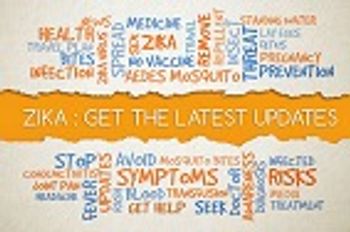
As Salmonella strains continue to develop resistance to antibiotics, UTMB researchers have developed an oral vaccine to assist in the fight against the food-borne infection.

As Salmonella strains continue to develop resistance to antibiotics, UTMB researchers have developed an oral vaccine to assist in the fight against the food-borne infection.

A new study explores why some animals and humans might be more susceptible than others to develop prion diseases.

A team of researchers in France explore if text message reminders in hospital settings will encourage better hand hygiene practices among healthcare workers.

Americans are gearing up for travel to celebrate the winter holidays amid a mild start to the influenza season.

Researchers have found that commonly used antiretroviral drugs may be the cause of a number of cognitive problems.

Researchers from France recently found that higher base levels of vitamin D were not associated with a stronger immune response in HIV-infected patients.

Researchers discover that being exposed to latter stages of malaria infection prevents cells from developing immunity to early liver stage infection.

Efforts to end the HIV/AIDS epidemic by 2030 face funding challenges, although new research is showing that we now have the tools and technology to eliminate the virus as a global health threat.

A new study has characterized risk factors for the development of active methicillin-resistant Staphylococcus aureus (MRSA) among patients who are colonized with the bacteria at hospital admission.

Researchers have found that the most common childhood cancer, acute lymphocytic leukemia, can be linked with congenital cytomegalovirus (CMV), a virus in the herpes family.

Researchers recently utilized Twitter user data to discern public opinions on the human papilloma virus (HPV) vaccine, with surprising results.

An alternative antibiotic treatment regimen for multidrug-resistant tuberculosis (TB) endorsed by WHO shows promising effects in a new study using computer modeling.

A new campaign is using bacteria-coated billboards to make people aware of how dirty the objects that they touch every single day actually are to encourage handwashing.

Researchers from Purdue University have discovered a connection between hepatitis B (HBV) infection and liver cancer.

New, cost-effective technology from a biotech start-up may be able to revolutionize Zika diagnosis.

More on the latest news regarding Zika virus research in pregnant women and their growing fetuses is included in this article.

Researchers from Brazil evaluated the use of optical coherence tomography to assess the impact of congenital Zika virus infection on infants’ eyes.

The recent discovery of a child mummy calls into question some assumptions about the history of smallpox.

In a new study, a team of pediatric hospital researchers found that cutting unnecessary blood cultures in children avoids false positives without resulting in missed sepsis diagnoses.

Researchers from the Centers for Disease Control and Prevention have published more information on the incidence of birth defects in infants born to mother infected with the Zika virus.

A new report from the US Department of Health and Human Services shows a drop in hospital-acquired conditions since 2010, marking improvements in patient safety for the national healthcare system.

UC San Francisco researchers have found a link between pubic hair grooming and sexually transmitted diseases.

Acute myocardial infarction rates are higher in HIV-positive patients; a new study out of the VA may help clinicians determine who’s most at risk.

Male circumcision has been promoted by public health officials as a way of reducing HIV-1 infection rates, and now, the first study of its kind shows that circumcision rates have also impacted the spread of HIV-2 in West Africa.

Researchers found that 6% of fetuses or infants congenitally infected with the Zika virus developed birth defects.

Researchers find that the tuberculosis vaccine can offer protection against other diseases due to its “trained immunity.”

As rates of syphilis have gone up around the world, a team of researchers from the University of Zurich have found that today’s epidemic strains have shared origins and emerged after the discovery of antibiotics.

A dynamic partnership has resulted in the development of a new, minimally-invasive device that can be used to treat HIV, cancer, and a number of other disease, ensuring medicinal adherence.

Why do more HCV-infected immigrants, rather than non-immigrants, end up hospitalized for liver problems? Inadequate screening and longer infection duration are likely reasons.

In a review article, researchers share current understanding of the pathogenesis of type IV T cell-dependent immune-mediated ADRs and review the evidence for diagnostics for T cell-mediated ADRs.